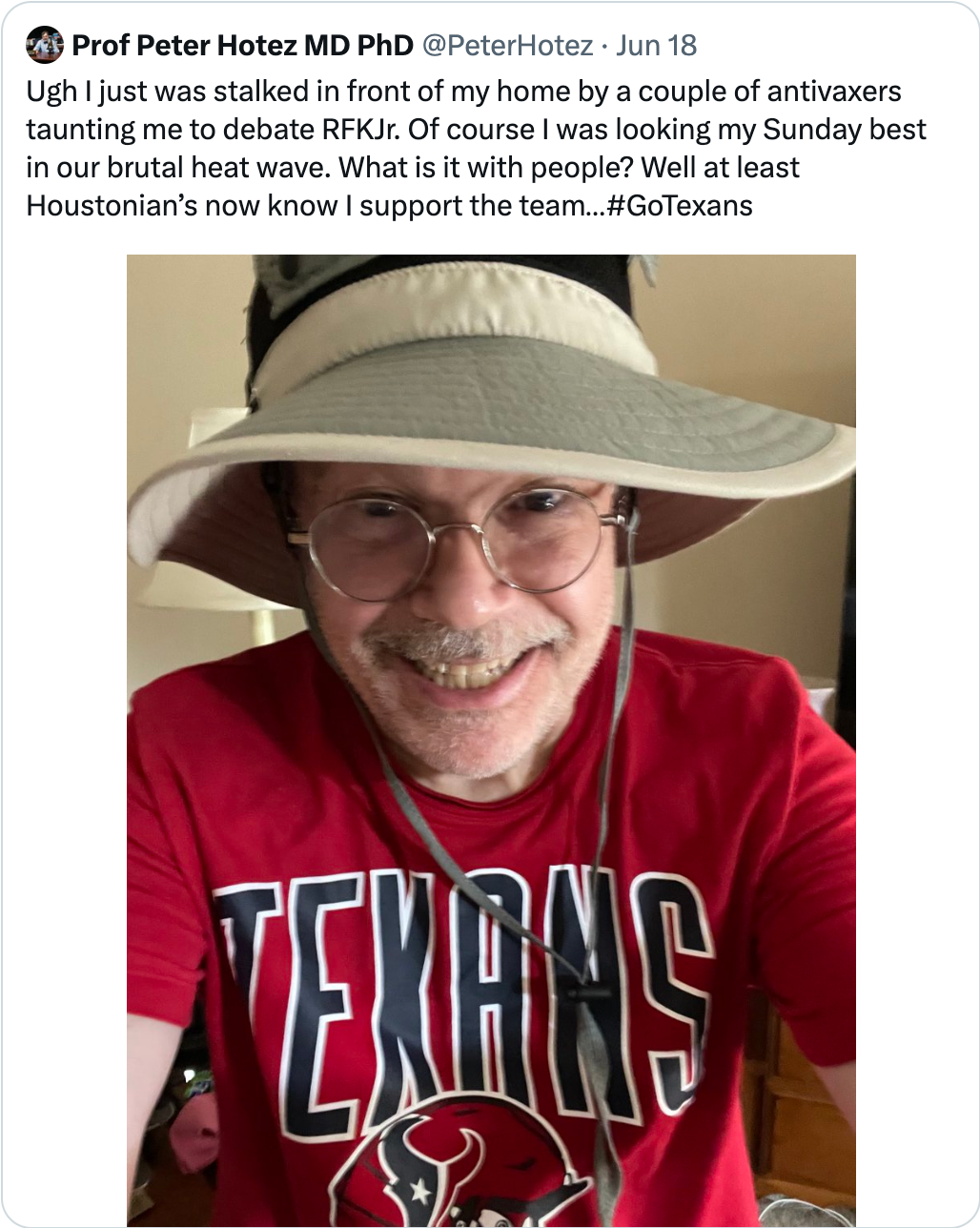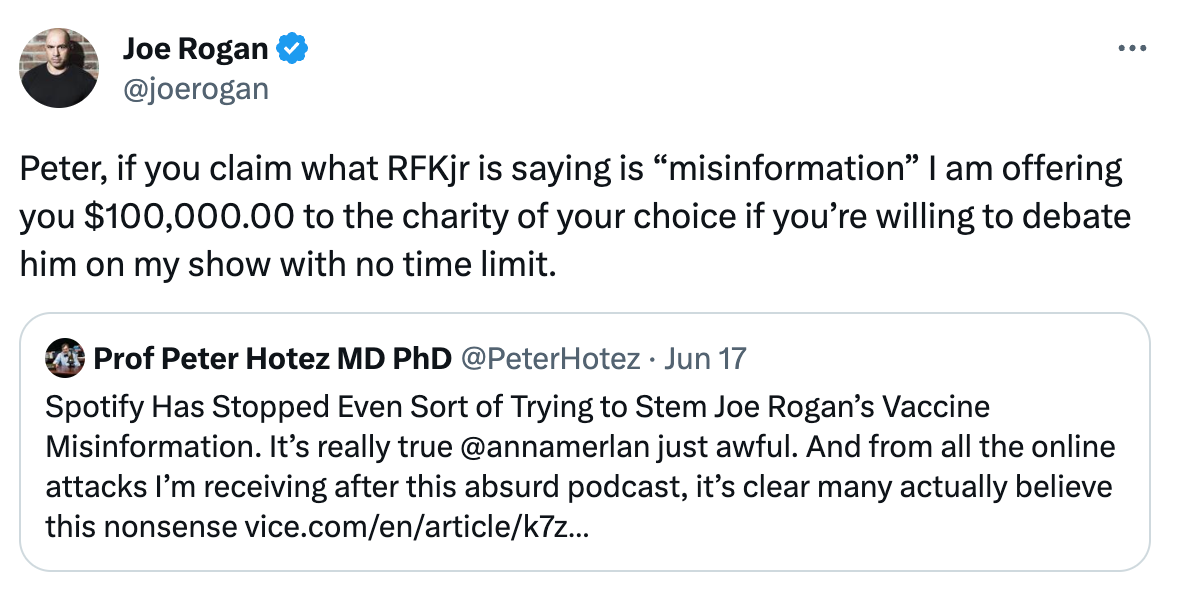Online Harassment of Physicians and Scientists During the COVID-19 Pandemic
This past weekend, vaccine scientist and physician Peter Hotez, MD, PhD, was stalked outside his home after facing online scrutiny from Twitter CEO Elon Musk and controversial podcaster Joe Rogan. His story is severe, but Hotez is far from the first health advocate to be harassed online since the COVID-19 pandemic.



Social media harassment poses very real risks for physicians and scientists who advocate for public health.
Most recently and publicly, prominent physician and vaccine scientist Peter Hotez, MD, PhD, faced a high volume of harassment on Twitter, and was even stalked outside his home by members of the anti-vaccine movement.
The scrutiny can be attributed to the controversial podcaster Joe Rogan challenging Hotez to debate COVID-19 vaccines with Democratic presidential candidate and known vaccine skeptic Robert F. Kennedy Jr.
A heated Twitter exchange ensued, with infamous Twitter CEO Elon Musk jumping in to insinuate Hotez “hates charity” after the doctor turned down Rogan’s offer to debate RFK Jr in exchange for $100000 donated to a charity of his choice.
Vaccine scientists and advocates have been subjected to online attacks since the beginning of the COVID-19 pandemic, and especially since the vaccine rollout. Some claim “hate speech” has only worsened since Musk took over as Twitter owner and CEO, and more scientists than ever are leaving or threatening to leave the platform.
However, it is unprecedented for a physician and scientist like Hotez to be targeted online by Twitter CEO Musk, as well as outside of his own home, for his health advocacy.
While previous studies have explored this issue before the COVID-19 pandemic, there is a lack of research on online harassment during the pandemic. Vaccine hesitancy and general distrust in science seemed to become more prevalent than ever on social media, but to what extent were these opinions weaponized against physicians and biomedical scientists?
A new study, published in JAMA Network Open, aimed to examine the experiences of physicians, biomedical scientists, and trainees who faced online harassment, particularly related to the dissemination of COVID-19 public health information.
The survey study, deemed exempt from review and informed consent, utilized questions from a prior study and recruited participants through Twitter. Inclusion criteria involved US residence and self-reported profession, and participant responses were collected from July 18-August 21, 2022. Demographic information was collected, and comparative statistics were calculated using χ2 analyses.
Out of 1028 survey views, 359 respondents met the inclusion criteria. The majority of respondents fell into the 35-44 age range, with a mix of gender identities. A significant portion (66%) reported experiencing harassment on social media, with advocacy being the primary reason. Gender (45%), race or ethnicity (27%), sexual orientation (13%), disability (6%), and other self-described reasons (31%) were also factors contributing to harassment.
Women (67%) and other genders (58%) reported higher levels of gender-based harassment compared to men (13%). Similarly, individuals from racial and ethnic minority backgrounds reported higher rates of race or ethnicity-based harassment. Broken down, 82% of Black respondents reported harassment directed at their race or ethnicity, compared to 52% of Asian respondents and 15% of White respondents. Among Hispanic participants, 69% reported race- or ethnicity-based harassment, compared to 25% of non-Hispanic respondents.
The investigators concluded that physicians and biomedical scientists face considerable levels of online harassment, which appears to have worsened during the COVID-19 pandemic. Given the crucial role of social media in disseminating medical and scientific knowledge, the prevalence of harassment may deter healthcare professionals from engaging, leaving misinformation on public platforms unchallenged.
Limitations of the study include potential biases and recall inaccuracies, as participants were asked to recall instances of both recent sand remote harassment. “At a time when physicians and biomedical scientists need support and their advocacy is vital to the national interest more than ever before, they are being badgered, doxxed, and sexually harassed,” wrote the study authors. “Institutions and companies should support those who are attacked and provide mechanisms to reduce harassment and provide accountability.”
Newsletter
Stay ahead of emerging infectious disease threats with expert insights and breaking research. Subscribe now to get updates delivered straight to your inbox.
